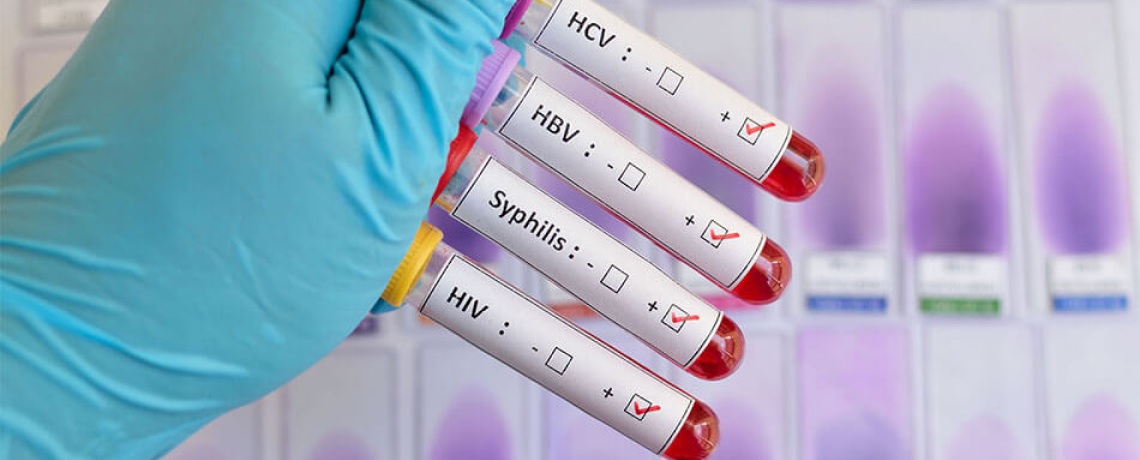Std Testing Accuracy: How Accurate Are Std Tests

An STD test should be performed at least once in a person’s life, and most people need it much more frequently than that. It is because STDs aren’t limited to high-risk populations. Anyone who has had sex is likely to have experienced them, as they are daily for many Americans. Getting an STD test in Los Angeles is extremely important. Unfortunately, most people are unaware of the prevalence of STDs. In fact, they incorrectly assume that they would know whether they were at risk and would be able to tell if they had an STD.
Accuracy of STD testing
Despite this, it’s not surprising that misconceptions are so frequent. In reality, many Los Angeles doctors are unaware of sexual health risks and do not recommend std testing to their patients.
They, too, assume it isn’t necessary. In monogamous relationships, married and other committed individuals often say they don’t need free std testing in Los Angeles because they have a single partner. We think that’s true to some extent, but only if all involved in the relationship had been screened for STDs before joining forces.
Unless they undergo STD testing in Hollywood, many people with STDs are unaware they have them. A couple’s relationship can be affected when symptoms appear years after the couple has been together, or when a woman discovers she has chlamydia only after struggling to get pregnant.
Free STD testing in downtown Los Angeles can help avoid unjustified accusations of infidelity by letting everyone know where they stand before a relationship begins. When people are in a relationship with unprotected sex, they don’t bother getting tested for STDs.
Since they believe they already have an STD if they’re going to get one, they assume they already have one. Is it worth bothering about something too late to save? You should still get tested or switch to safer sex if you haven’t done so already. It’s not like an infected person will transmit STDs every time they have sex.
The process of getting an STD test at home isn’t enjoyable. The fear of having an STD is even more unpleasant than knowing you have one. In fact, STD testing is a relief for most people who have avoided getting tested for years.
Why you need STD testing
Protect yourself and your partner from infection by getting tested for sexually transmitted diseases (STDs). The STD test isn’t 100% accurate. Even when test results are negative, an STD may still exist. Considering the potential impact of some STDs, ranging from genital warts to fertility issues to cancer. It may seem impossible to have one without knowing it. However, it happens quite often.
In 2018, approximately one in five people in the U.S. had a sexually transmitted infection (STI) on any given day, according to an analysis published in the journal Sexually Transmitted Diseases. The diagnosis was unknown to some but known to others. STD tests are not always accurate for a variety of reasons.
It is possible that you haven’t been tested
It is a common misconception that healthcare providers screen their patients for STDs as part of their annual exams. Unfortunately, this is not the case. Although practice guidelines recommend screening clients for STDs, many providers do not do so.
To ensure you are being tested for STDs, you need to ask your provider for the test. Let them know if you’ve been exposed. Always be open and clear about your sexual history (past and present), how you have sex, and what you (if any) do to prevent the spread of STIs. These facts can help determine whether specific tests are necessary.
It’s Possible That You Were Tested Too Soon
Some STD tests cannot detect newly acquired infections. The standard blood test for syphilis does not detect the disease early enough, according to a study published in 2014. Unlike HIV tests, some STD tests look for an antibody response (instead of detecting a bacterial or viral infection). These tests may be prone to error if given too soon as antibodies take time to develop.
Inaccurate results were obtained from the test
Diagnostic tests are always designed to strike a balance between sensitivity and specificity. It is almost impossible to determine if someone has been infected without a test. An STD test’s accuracy in predicting your health is partly determined by the population it is being administered to.
There are usually ways to make the results of most tests more accurate, and most tests are designed well. It is still possible to have false positives or false negatives. Depending on the disease in question and the test used to detect it, you may need to be concerned about a particular problem.
